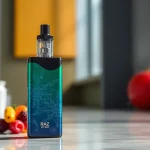Understanding Hotel Room Wardrobes
What is a Hotel Room Wardrobe?
Hotel room wardrobes are essential pieces of furniture designed to enhance the guest experience by providing a designated space for storing clothing and personal items. Unlike standard closets found in residential homes, hotel wardrobes often come in a variety of styles, sizes, and functionalities tailored to meet the specific needs of hotel guests. They can range from simple built-in designs to elaborate freestanding units equipped with modern features.
Importance of Wardrobes in Guest Rooms
Wardrobes play a crucial role in guest satisfaction, as they offer an organized way to store belongings during a hotel stay. When guests arrive at their rooms, they often seek a clean and efficient way to manage their luggage. A well-designed wardrobe facilitates this process, improving their overall experience and perception of the hotel. This is particularly important in higher-end accommodations, where guests expect a certain standard of comfort and convenience. For insight into various designs and functionalities, visit Hotel Room Wardrobes.
Types of Hotel Room Wardrobes
There are several types of hotel room wardrobes, each catering to different design aesthetics and guest needs:
- Built-in Wardrobes: These are integrated into the room’s architecture, maximizing space while providing a seamless look.
- Freestanding Wardrobes: These versatile options can be relocated and often serve as statement pieces in the room’s decor.
- Modular Systems: These customizable units allow hotels to adapt wardrobe designs to fit various room sizes and layouts.
- Open and Closed Wardrobes: Open designs provide easy access to belongings, while closed ones offer privacy and a clean look.
Design Trends for Hotel Room Wardrobes
Contemporary Styles and Materials
The design of hotel room wardrobes has evolved over recent years, with contemporary styles emphasizing minimalism, functionality, and aesthetics. Many hotels are opting for materials like engineered wood, metal, and glass. The blend of these materials not only modernizes the look of the wardrobe but also aids in durability and ease of maintenance.
Functional Features and Innovations
Today’s hotel room wardrobes incorporate various functional features that enhances the guest experience. For instance:
- Integrated Lighting: Lighting within wardrobes makes it easy for guests to find items, especially in darker rooms.
- Laptop and Tech Storage: Many wardrobes now come equipped with compartments specifically designed for laptops and other electronic devices.
- Adjustable Shelving: Customizable shelving can adapt to the needs of different guests, making it easier to store various sizes of clothing and accessories.
Custom vs. Pre-made Solutions
Hotels must choose between custom and pre-made wardrobe solutions. Custom designs allow hotels to tailor wardrobes to their unique brand and aesthetic, while pre-made options can save time and costs. Both choices have pros and cons, and the decision often depends on budget, space requirements, and design goals.
Benefits of Quality Wardrobe Solutions
Enhancing Guest Satisfaction
High-quality wardrobes contribute significantly to guest satisfaction. A well-organized space allows visitors to feel more at home, leading to positive reviews and repeat bookings. Moreover, elegant and functional designs can elevate the overall aesthetic of the room, making it more appealing.
Maximizing Space in Small Rooms
In urban environments, where hotel rooms tend to be smaller, efficient wardrobe designs can maximize storage space. Options like vertical storage or under-bed compartments optimize room functionality while ensuring that guests have adequate space to store their belongings.
Improving Hotel Aesthetics
A wardrobe’s design can greatly influence the overall aesthetic of a hotel room. Styles that align with the hotel’s theme can create a cohesive environment, thus enhancing the guest’s experience. Hotels that innovate with wardrobe designs that reflect local culture or modern trends may find that it distinguishes them from competitors.
Best Practices for Selecting Hotel Room Wardrobes
Considerations for Size and Functionality
When choosing a hotel wardrobe, size and functionality should be top priorities. The wardrobe should adequately accommodate the target guest demographic, from business travelers with suits to families with multiple pieces of luggage. Additionally, hotels should consider adding features like mirrors or seating within or adjacent to the wardrobe for added functionality.
Balancing Style and Budget
Finding the right balance between style and cost is essential. While high-end materials and custom designs elevate the guest experience, they can also strain budgets. Conducting thorough market research on available wardrobe options within budget constraints can aid in making informed decisions.
Collaborating with Designers and Manufacturers
Hotels should work closely with designers and manufacturers to ensure they receive wardrobes that not only meet functional needs but also reflect the hotel’s branding. By collaborating, hotels can bring unique and practical solutions to life, ensuring guest expectations are met.
Future of Hotel Room Wardrobes
Post-Pandemic Design Considerations
The COVID-19 pandemic has shifted how guests perceive cleanliness and safety within hotel rooms. Emerging design trends focus on contactless features, such as automated doors or sanitization options. The demand for minimalist designs that reduce clutter will likely increase, as guests seek peace of mind in their accommodations.
Innovations in Wardrobe Functionality
Wardrobe functionality is poised for further advancements, with technology playing a pivotal role. Innovations like RFID tracked systems for easy luggage access or smart wardrobes that can adjust their shelving based on the content could soon become standard.
Sustainable Materials and Practices
As sustainability grows in importance, hotels are turning to eco-friendly materials for their wardrobes. Manufacturers using sustainably sourced wood, recycled materials, and low-VOC finishes appeal to the environmentally conscious traveler, largely influencing purchasing decisions. Additionally, sustainable practices in wardrobe manufacture may provide competitive advantages in the market.








